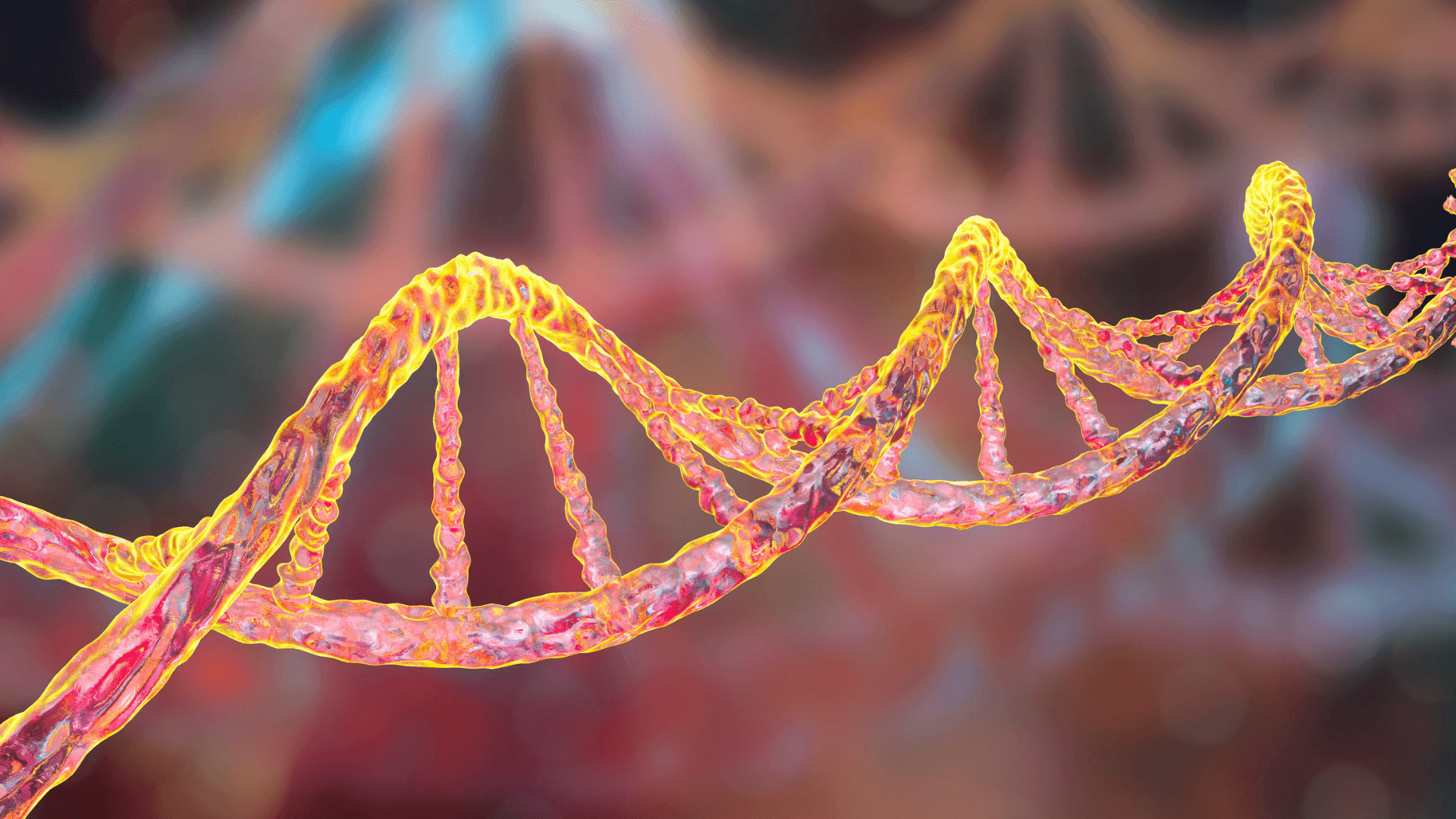Study Reveals Human Microbiome is Highly Individualized
Study Reveals Human Microbiome is Highly Individualized
Study Reveals Human Microbiome is Highly Individualized
Sep 2, 2024
Sep 2, 2024
Sep 2, 2024

Illustrative image. Credit: Getty Images via Canva.
Illustrative image. Credit: Getty Images via Canva.
Illustrative image. Credit: Getty Images via Canva.
A new study reveals that the human microbiome, made up of trillions of microorganisms, is highly individualized, varying significantly from person to person. These findings open doors for personalized health treatments and new approaches to combating diseases.
A new study reveals that the human microbiome, made up of trillions of microorganisms, is highly individualized, varying significantly from person to person. These findings open doors for personalized health treatments and new approaches to combating diseases.
A new study reveals that the human microbiome, made up of trillions of microorganisms, is highly individualized, varying significantly from person to person. These findings open doors for personalized health treatments and new approaches to combating diseases.
A study led by scientists at Stanford University has revealed that the human microbiome – the collection of microorganisms that inhabit the body – is highly individualized, and each person's specific bacteria are the most stable over time. The research followed 86 participants for up to six years, showing that this unique microbial community is essential for health, while changes in the microbiome are linked to infections and chronic diseases.
Individualized Microbiome
The research showed that each person has a distinct microbiome, with certain unique bacteria that are more stable than those shared among individuals. "No two microbiomes are alike," says Michael Snyder, a professor of Genetics at Stanford and the study's lead author. The scientists found that these differences vary from person to person and are also shaped by factors such as diet, environment, and immune system, creating a unique microbial signature for each individual.
Microbiome and Health
One of the study's most remarkable findings is the relationship between microbiome stability and overall health. When a person's microbiome remains stable, it generally indicates a healthy state. On the other hand, changes in the microbiome, especially in the gut, have been associated with infections, inflammation, and chronic diseases like type 2 diabetes. Individuals with this condition, for example, showed significantly less stable microbiomes, suggesting a connection between microbial dysfunction and the development of diseases.
Long-Term Study
To reach these conclusions, the researchers collected thousands of microbiome samples from the gut, mouth, skin, and nose of the 86 participants over six years. The study allowed scientists to observe how these populations of microorganisms changed in response to health events and environmental factors.
During respiratory infections, for example, the microbiome of the respiratory tract changed, and these alterations were also observed in other parts of the body, such as the gut and skin, suggesting a coordinated immune response.
No "Ideal Microbiome"
One of the study's most innovative aspects was challenging the idea that there is a "standard" or ideal microbiome for everyone. The study reinforces that each person's microbial composition is highly individualized, and what is considered healthy for one person may not necessarily be healthy for another. "Microbiological health is relative and depends on various factors such as diet, lifestyle, and environmental interactions," Snyder emphasized.
Impact on Health
The study's results highlight that an individualized microbiome affects metabolic and immune health. This unique microbial community helps regulate the immune system, directly influencing how the body responds to pathogens and inflammation. Moreover, the research suggests that, instead of aiming for a universal ideal microbiome, health approaches should focus on supporting each individual's microbial diversity and stability.
—
Want to learn more about how this study could impact future research? Check out the full study and the article that inspired this piece.
A study led by scientists at Stanford University has revealed that the human microbiome – the collection of microorganisms that inhabit the body – is highly individualized, and each person's specific bacteria are the most stable over time. The research followed 86 participants for up to six years, showing that this unique microbial community is essential for health, while changes in the microbiome are linked to infections and chronic diseases.
Individualized Microbiome
The research showed that each person has a distinct microbiome, with certain unique bacteria that are more stable than those shared among individuals. "No two microbiomes are alike," says Michael Snyder, a professor of Genetics at Stanford and the study's lead author. The scientists found that these differences vary from person to person and are also shaped by factors such as diet, environment, and immune system, creating a unique microbial signature for each individual.
Microbiome and Health
One of the study's most remarkable findings is the relationship between microbiome stability and overall health. When a person's microbiome remains stable, it generally indicates a healthy state. On the other hand, changes in the microbiome, especially in the gut, have been associated with infections, inflammation, and chronic diseases like type 2 diabetes. Individuals with this condition, for example, showed significantly less stable microbiomes, suggesting a connection between microbial dysfunction and the development of diseases.
Long-Term Study
To reach these conclusions, the researchers collected thousands of microbiome samples from the gut, mouth, skin, and nose of the 86 participants over six years. The study allowed scientists to observe how these populations of microorganisms changed in response to health events and environmental factors.
During respiratory infections, for example, the microbiome of the respiratory tract changed, and these alterations were also observed in other parts of the body, such as the gut and skin, suggesting a coordinated immune response.
No "Ideal Microbiome"
One of the study's most innovative aspects was challenging the idea that there is a "standard" or ideal microbiome for everyone. The study reinforces that each person's microbial composition is highly individualized, and what is considered healthy for one person may not necessarily be healthy for another. "Microbiological health is relative and depends on various factors such as diet, lifestyle, and environmental interactions," Snyder emphasized.
Impact on Health
The study's results highlight that an individualized microbiome affects metabolic and immune health. This unique microbial community helps regulate the immune system, directly influencing how the body responds to pathogens and inflammation. Moreover, the research suggests that, instead of aiming for a universal ideal microbiome, health approaches should focus on supporting each individual's microbial diversity and stability.
—
Want to learn more about how this study could impact future research? Check out the full study and the article that inspired this piece.
A study led by scientists at Stanford University has revealed that the human microbiome – the collection of microorganisms that inhabit the body – is highly individualized, and each person's specific bacteria are the most stable over time. The research followed 86 participants for up to six years, showing that this unique microbial community is essential for health, while changes in the microbiome are linked to infections and chronic diseases.
Individualized Microbiome
The research showed that each person has a distinct microbiome, with certain unique bacteria that are more stable than those shared among individuals. "No two microbiomes are alike," says Michael Snyder, a professor of Genetics at Stanford and the study's lead author. The scientists found that these differences vary from person to person and are also shaped by factors such as diet, environment, and immune system, creating a unique microbial signature for each individual.
Microbiome and Health
One of the study's most remarkable findings is the relationship between microbiome stability and overall health. When a person's microbiome remains stable, it generally indicates a healthy state. On the other hand, changes in the microbiome, especially in the gut, have been associated with infections, inflammation, and chronic diseases like type 2 diabetes. Individuals with this condition, for example, showed significantly less stable microbiomes, suggesting a connection between microbial dysfunction and the development of diseases.
Long-Term Study
To reach these conclusions, the researchers collected thousands of microbiome samples from the gut, mouth, skin, and nose of the 86 participants over six years. The study allowed scientists to observe how these populations of microorganisms changed in response to health events and environmental factors.
During respiratory infections, for example, the microbiome of the respiratory tract changed, and these alterations were also observed in other parts of the body, such as the gut and skin, suggesting a coordinated immune response.
No "Ideal Microbiome"
One of the study's most innovative aspects was challenging the idea that there is a "standard" or ideal microbiome for everyone. The study reinforces that each person's microbial composition is highly individualized, and what is considered healthy for one person may not necessarily be healthy for another. "Microbiological health is relative and depends on various factors such as diet, lifestyle, and environmental interactions," Snyder emphasized.
Impact on Health
The study's results highlight that an individualized microbiome affects metabolic and immune health. This unique microbial community helps regulate the immune system, directly influencing how the body responds to pathogens and inflammation. Moreover, the research suggests that, instead of aiming for a universal ideal microbiome, health approaches should focus on supporting each individual's microbial diversity and stability.
—
Want to learn more about how this study could impact future research? Check out the full study and the article that inspired this piece.
Compartilhar em:
Compartilhar em:

DeepSeek AI: o chatbot chinês que está sacudindo o mercado global
Feb 7, 2025

Estudo revela que a vida social ativa pode reduzir o risco de demência
Feb 4, 2025

Ano Novo Lunar 2025: a chegada do Ano da Serpente
Jan 30, 2025

Nova hipótese sobre a origem dos dinossauros desafia conceitos tradicionais
Jan 27, 2025

Ambiente potencialmente habitável em Marte é descoberto pelo Perseverance
Dec 20, 2024

As emoções e o corpo humano: conexões milenares nos textos neo-assírios
Dec 20, 2024

Estudo relaciona poluição do ar ao risco de tromboembolismo venoso
Dec 20, 2024

Colapso da plataforma de gelo Conger: alerta para a Antártica Oriental
Dec 20, 2024

Revolução XRISM: novas descobertas sobre buracos negros supermassivos
Oct 15, 2024

Estudo aponta que duplicação do gene AMY1, relacionado à digestão de amido, precede a agricultura
Oct 14, 2024

Nascimentos na UE caem para menos de 4 milhões pela primeira vez desde 1960
Oct 11, 2024

Escavação na Dinamarca revela 50 esqueletos Viking incrivelmente preservados
Oct 10, 2024

Estudo indica maior incidência de asma e rinite alérgica em pessoas nascidas no outono e inverno na Finlândia
Oct 9, 2024

Estudo demonstra semelhanças entre a puberdade de adolescentes da Idade do Gelo e jovens modernos
Oct 8, 2024

Análise de DNA em múmias chinesas de 3.600 anos revela queijo mais antigo do mundo
Oct 7, 2024

Estudo revela estabilidade genética de populações da África Austral por 10 milênios
Oct 4, 2024

Nove lugares míticos que podem ter existido, segundo descobertas arqueológicas
Oct 3, 2024

Como os direitos humanos podem salvar recifes de coral e responsabilizar governos
Oct 2, 2024

Relatório da Carbon Brief aponta que 2024 pode ser o ano mais quente da história
Sep 4, 2024

Clima determina a distribuição de mamíferos, revela estudo da Universidade Estadual da Carolina do Norte
Sep 4, 2024
Ver Também
Ver Também
Ver Também
Ver Também

DeepSeek AI: o chatbot chinês que está sacudindo o mercado global
Feb 7, 2025

Estudo revela que a vida social ativa pode reduzir o risco de demência
Feb 4, 2025

Ano Novo Lunar 2025: a chegada do Ano da Serpente
Jan 30, 2025

Nova hipótese sobre a origem dos dinossauros desafia conceitos tradicionais
Jan 27, 2025

Ambiente potencialmente habitável em Marte é descoberto pelo Perseverance
Dec 20, 2024

As emoções e o corpo humano: conexões milenares nos textos neo-assírios
Dec 20, 2024

Estudo relaciona poluição do ar ao risco de tromboembolismo venoso
Dec 20, 2024

Colapso da plataforma de gelo Conger: alerta para a Antártica Oriental
Dec 20, 2024

Revolução XRISM: novas descobertas sobre buracos negros supermassivos
Oct 15, 2024

Estudo aponta que duplicação do gene AMY1, relacionado à digestão de amido, precede a agricultura
Oct 14, 2024

Nascimentos na UE caem para menos de 4 milhões pela primeira vez desde 1960
Oct 11, 2024

Escavação na Dinamarca revela 50 esqueletos Viking incrivelmente preservados
Oct 10, 2024

Estudo indica maior incidência de asma e rinite alérgica em pessoas nascidas no outono e inverno na Finlândia
Oct 9, 2024

Estudo demonstra semelhanças entre a puberdade de adolescentes da Idade do Gelo e jovens modernos
Oct 8, 2024

Análise de DNA em múmias chinesas de 3.600 anos revela queijo mais antigo do mundo
Oct 7, 2024

Estudo revela estabilidade genética de populações da África Austral por 10 milênios
Oct 4, 2024

Nove lugares míticos que podem ter existido, segundo descobertas arqueológicas
Oct 3, 2024

Como os direitos humanos podem salvar recifes de coral e responsabilizar governos
Oct 2, 2024

Relatório da Carbon Brief aponta que 2024 pode ser o ano mais quente da história
Sep 4, 2024

Clima determina a distribuição de mamíferos, revela estudo da Universidade Estadual da Carolina do Norte
Sep 4, 2024